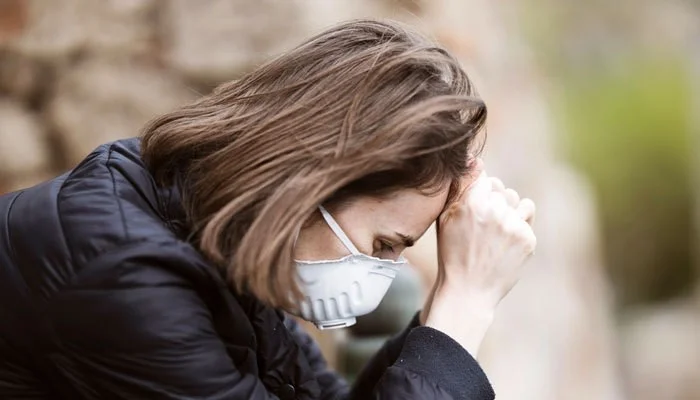When people think of depression, they often think of the standard stereotypes. Most may visualize someone who can’t get out of bed or is in a bad mood all the time. There are a lot of exaggerated examples of depression out there, and while some may be relatable, they are not an accurate representation of the depressive experience for everyone.
A misunderstanding about mental illness is the assumption that everyone experiences the same symptoms. While some people with depression certainly may have trouble getting out of bed, it’s not true for all those who struggle. The symptoms people experience depend on several factors, and it’s more likely that everyone’s experience with depression is unique.
It’s common for people to live their lives without knowing they’re depressed because of these misconceptions. Having a broader awareness of symptoms and impact can help people recognize when they should seek help. The following symptoms and experiences are some signs that you or someone you know may have underlying depression.
Table of Contents
Unhealthy Habits
People who struggle with mental illness are more likely to make certain decisions in their lives that a more stable person wouldn’t. Especially when people lack self-awareness, they often make decisions that provide instant gratification, instead of doing what’s most healthy for their body. This may lead to dangerous behaviors that cause more serious issues on top of depression.
Substance Abuse
The party culture in the United States has made it easy for many to start a bad habit of drinking regularly. Those in college are frequently exposed to environments that are accepting of heavy drinking. Not only is this detrimental to physical health, but it is a risk for those struggling with depression. People with a lack of self-awareness can easily fall into alcohol dependency due to its numbing and feel-good qualities.
Alcohol isn’t the only addictive substance that is often used as a crutch. People who smoke a considerable amount of marijuana may also have something under the surface they are trying to distract themselves from. Regardless of the chosen drug, those struggling may find themselves needing stronger assistance when recovering. Inpatient treatment for substance abuse is a good first step for trying to address your mental illness if it’s paired with drug use.
Disordered Eating
Sometimes depression will hide behind other conditions related to diet and disordered eating. In a society that consistently criticizes men’s and women’s bodies, it’s easy to develop deep insecurities about your physical features. Often those who develop eating disorders are deeply unhappy with themselves and how they look. The low self-esteem that comes with depression can cause people to manifest a poor relationship with food and only further damage their physical and mental wellness.
However, sometimes it’s less cognizant and isn’t as serious as an eating disorder. Even an increase or decrease in appetite can be a symptom of depression. These changes can be gradual, like eating a more unhealthy diet due to a lack of motivation. Someone who’s depressed may skip meals altogether without it being related to body image. Regardless, everyone needs a nourishing diet to feel at their best. A drastic change in appetite could be your cue that something is wrong, either with yourself or someone else.
Impacted Relationships
Depression often creeps into more than just the personal world of the person struggling. It tends to affect how they relate to others and show up in their relationships. These effects aren’t always the most obvious to the person struggling, as they are rarely on the receiving end of their behavior. However, people who detriment their relationships will experience more loneliness, worsening depressive symptoms.
Friendships
If you’re constantly lacking the energy to maintain relationships or be social, you could be struggling with underlying depression. It’s typical for those with depression to isolate and be non-communicative with friends. Even the friends who still show up in person may have signs of withdrawal on the surface. They may be quiet or withdraw from emotional vulnerability by keeping conversations light.
Or perhaps they won’t show up in person and cancel at the last minute. Their lack of motivation and social confidence will encourage flakiness on their end. These behaviors are hurtful to friends who don’t know what’s going on underneath the surface. Unfortunately, unrecognized depression in these cases can cause broken friendships.
Romantic Relationships
Someone who’s depressed is more likely to struggle in romantic relationships. Depression may motivate someone to believe that they aren’t good enough, or aren’t deserving of love. It can also cause someone to be more irritable or defensive, creating more conflict within the relationship. With no acknowledgment of depression, it’s difficult for a partner to navigate, and it could even lead to a break-up.
It can impact sexual desire as well. Most people with underlying depression experience a decreased sex drive, which will have its own impact on a relationship. On the flip side, depression can be more common in hypersexual relationships as well, as one or both partners may be looking for a distraction through intimacy.
Education is Critical
Depression is a complex mental illness, and it’s not always easy to spot from a distance. It’s rare for people to identify with the most popular examples of the condition, making it difficult for people to recognize when they need help. Without proper education on how depression can show itself, many people will go a long time without receiving appropriate treatment. Learning how to spot the more subtle signs will help you recognize when depression rears its head in your life.

